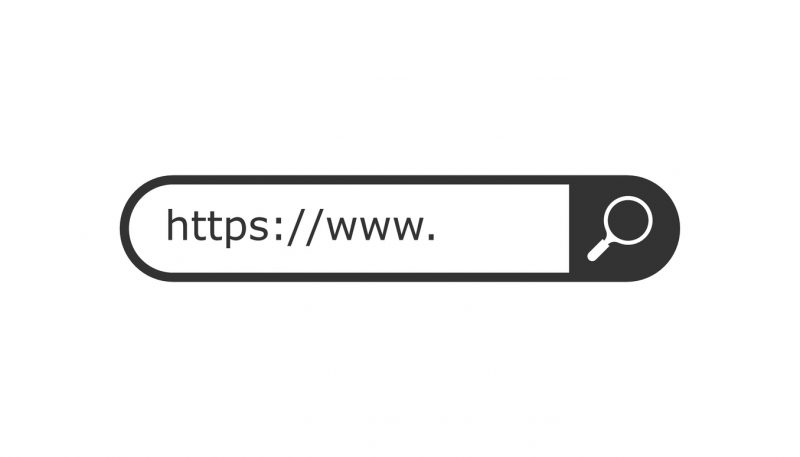Your online presence is an essential step in your branding and plays a part in your business. Registering a domain name isn’t a long process, but getting the right domain name is essential.
So, how do you choose a domain name? And what else do you need to know about domain names?
You Won’t Own It
Something important to keep in mind is that you won’t own the domain name – even after you have purchased it. The domain name isn’t actually owned by anyone – not even you.
The act of registering your domain name secures it for your usage until the moment that the registration runs out.
Essentially you are renting your domain name, but like you rent a house. Someone else owns it, and you need to keep paying for it to stay there.
Does my domain name need to match your business name?
This is a personal decision.
If you are an online business only, then you might find that your domain name doesn’t really matter that much, but you can use a more suitable name.
If you have a local base of customers, you will do better to ensure your business’s domain name and the name of your business are the same.
Taking your business online, you might decide to separate your online business and physical business.
If you are still starting your business, you can research the impact of domain names that work well and modify your business name to fit.
Can you have a domain name with keywords?
There is some evidence that says when you have a domain name with a keyword in it, it has a higher conversion rate.
When searching for a business or a product online, you are more likely to click the website that has the keywords of your search.
Consider if you were looking for an SEO company. If you find a company called SEO Masters or Pink Flamingo, which one are you most likely to click on during your search?
You’re most likely to go with the SEO Masters – simply because they have what you need in their name.
Having keywords in your domain name is great for your potential customers, but it might not have as much impact on your ranking as you think.
Google’s official message is that a keyword in your domain name won’t increase your site’s relevancy.
The focus should be on a domain name that gives:
- Customers insight into what you provide
- Allows you to grow without locking you into a single keyword
Short and Sweet
If your domain name is long, it opens itself up to being difficult type and difficult to remember.
Potential customers might not have the determination to keep typing it in until they get it right.
Keep your name as simple as possible.
Domain names that are business names do tend to be short; try to keep it to two words as a maximum.
The meaning behind your domain name
Where it makes sense for your business, you should think about the meaning behind the domain name.
If you are running a leadership program and the aim is to get people into the head of the table, having a domain name with Table it in may be confusing. People tend to associate tables with furniture.
You can look at the qualities that you want your web design and brand to get across.
An exercise that can help is to write down what you want potential clients to feel when they visit your website. An alternative to that is the association with a local area or a place.
Play with word variations and synonyms until you get the right balance between information and meaning.
Avoid hyphens
Hyphens-look-messy.
They give people extra things to type in and remember, which means that they may get them wrong when manually typing.
Hyphens are also more often associated with spam websites.
Photos-4-u looks a lot less appealing than photos4u. Avoid the spammy look and ditch the hyphens.
Domain name variations
If you register the domain name ‘contentwriter.com.au,’ then you should consider ‘contentwriters.com.au’ too. This is simply because people have a habit of adding an ‘s’ to domain names.
Write down all of the ways that your domain name could be miswritten, and consider the worth of registering multiple domains and having them all point to your main domain.
An extra benefit to having multiple domains registered is that you are blocking potential competition from trying to hijack your domain name and traffic.
Registering different domains in other countries can also give you the opportunity to expand into those countries later down the line.
What if the AU is already registered?
.au is the prime Australian extension.
Many people also opt to register the .com too.
Customers put their trust in the domain extension that is used. It gives them an immediate indication of where the company is based.
If you find that another company has registered the domain name in multiple other county extensions, then you may need to reconsider your domain name choice.
There are occasions where the website has been purchased but not used; you can reach out and offer to buy the domain. You can use WHOis records to locate the owner or use a domain name broker to help.
ccTLD
ccTLDs are county code top-level domains, and they are specific to a county.
Visitors to your website prefer to see a ccTLD that is specific to their country. It gives people immediate information about things like currency, shipping, and a level of trust.
If your clients are based in Australia, then .au is the domain that makes sense.
ccTLD domains tend to convert at a higher rate within their countries, which makes them worth it.
Conclusion
Choosing the best domain name for your business takes time and research; it isn’t as simple as you might think.
Understand your business goals now and in the future to secure a domain name that makes sense and will give you a higher rate of conversions.
Contact FWRD Digital today to discuss all of your web design and development needs.








Leave A Comment
You must be logged in to post a comment.